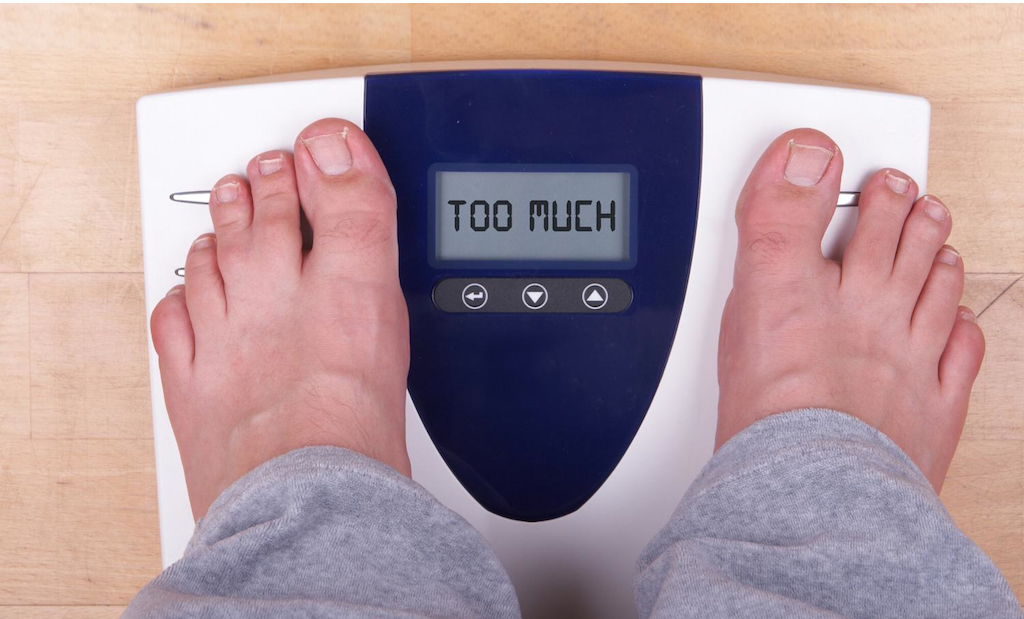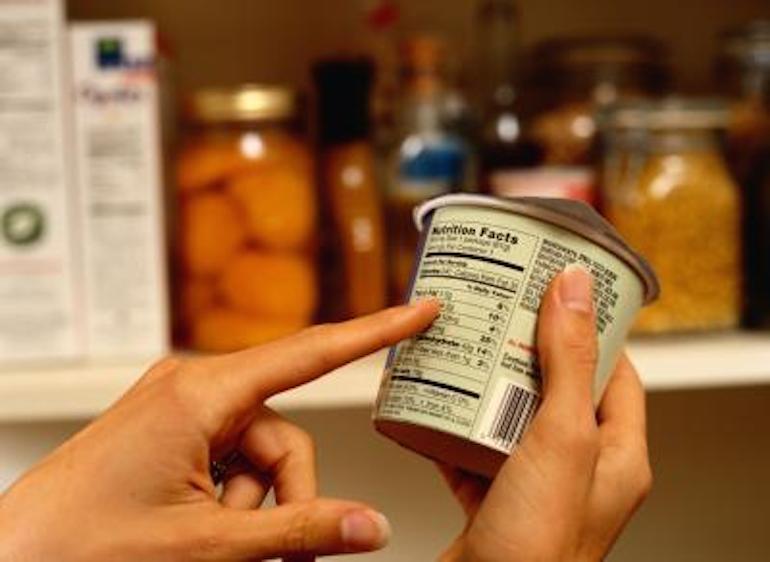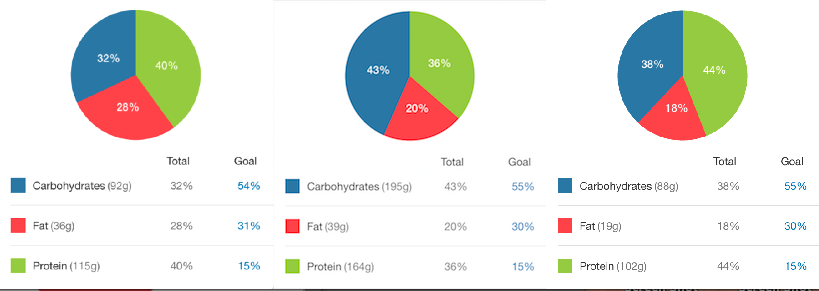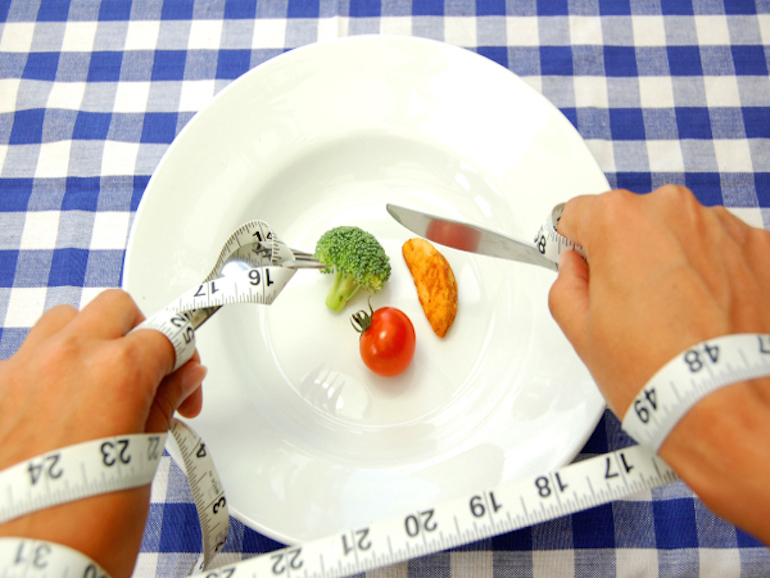-
4. I spent more time on my food diary than on eating.
4. I spent more time on my food diary than on eating.

Photo courtesy of giphy.com
Being so meticulous about my food diary was pretty time consuming. I literally started setting my alarm clock 30 minutes earlier so that I could plan and enter all my meals for the day before doing anything else.
Before eating or buying anything, I would painstakingly analyze a food’s nutrition facts to ensure it was the best possible choice. At night, I would try to determine how “successful” I had been that day and contemplate what I could do better the next day.

Photo courtesy of MyFitnessPal
All in all, I probably ended up spending two to three hours on my food journal per day. Assuming I was awake for about fifteen hours, the food diary consumed about a fifth of my time.
5. I still wasn’t satisfied.

Photo courtesy of Medicalnewstoday.com
Even when I had reached my goal weight, I continued to obsessively weigh myself four or five times per day. I knew exactly how much I “should” weigh at a given time of day and how a certain meal or workout would affect my weight.
That number determined whether I was allowed to enjoy life. If my food diary had really been an effort to increase healthiness rather than control my weight, I wouldn’t have been so elated when I shed pounds and defeated when I gained them.
If you keep a food diary, and any of this sounds like you, please consider that there may be reasons other than eating healthy driving you to keep a food diary. Ask yourself if you’re using food to avoid dealing with more complicated problems you may be facing. Let yourself go back to loving food without obsessing over it constantly.
Between January and March of 2015, I lost about 15 pounds in a completely healthy way. I never starved myself or purged, and I decreased the amount and intensity that I exercised which I had previously done in excess. I never abused my body.
However, that does not mean that I never abused my mind. Negative relationships with food are not always about body image or self-esteem; they can be manifestations of a number of deeper psychological issues. For me, and many others, that issue is control.

Photo by Connie Trowbridge
There were a great deal of things happening in my life that I didn’t have the power to change, so instead of exerting the mental energy to deal with them and how they were affecting me emotionally, I relied on food to tell me how to feel.

Photo courtesy of MyFitnessPal
I used MyFitnessPal, an app that lets you track weight loss, log food and exercise, and view the nutritional breakdown of your meals. For some people, this is a great way to ensure they are being healthy, but I used my food journal as a quantifiable, simple, and controllable way to determine my mood.
Because it became such an integral part of my emotions, my food journal began to dominate my life:
1. I became fixated on the smallest of details.

Photo courtesy of healthyeating.sfgate.com
I could give numerous examples of this, but the most insane was my obsession with sodium and potassium. One day, I decided I was bloated because I was retaining water because I was eating too much sodium and not enough potassium.
I became fixated on minimizing my sodium and maximizing my potassium intake. I would eat about a bag of spinach (an incredibly high potassium food) per day, while avoiding anything that had more than 400 mg of sodium per serving.

Photo courtesy of MyFitnessPal
If my potassium levels didn’t meet the recommended amount or my sodium levels exceeded the recommendation, it was a bad day.
2. I still wasn’t necessarily being healthy.
At least limiting sodium and increasing potassium was good for me, however, I also became fixated on certain details that weren’t necessarily healthy. I thought I could out-healthy the health recommendations.
For example, MyFitnessPal recommended my diet be 55 percent carbs, 30 percent fat, and 15 percent protein, and many sources agree that this is about the proper nutritional breakdown.
Everyone knows that carbs and fat are bad, while protein is good. I tended to aim for at least 40 percent protein and 20 percent of carbs and fat each.

Photo courtesy of MyFitnessPal
Still, too much of anything, including protein, is unhealthy. I knew that, but once I became obsessed 40 percent of my diet being protein, I couldn’t stop aiming for that even though I knew it wasn’t good for me.
3. I recorded every ounce of food that I ate.

Photo courtesy of idivia.com
I would record the five cherry tomatoes I had with breakfast. I would record a bite of someone else’s dish that I tried. I would record a small piece of chocolate I ate after dinner.

Photo courtesy of MyFitnessPal
Even when I baked, I would use their recipe tool to calculate the nutritional value of what I was making to record it. If I even considered eating something, I would have to record it to see how it would affect my nutrition values for the day.
-
4. I spent more time on my food diary than on eating.
4. I spent more time on my food diary than on eating.

Photo courtesy of giphy.com
Being so meticulous about my food diary was pretty time consuming. I literally started setting my alarm clock 30 minutes earlier so that I could plan and enter all my meals for the day before doing anything else.
Before eating or buying anything, I would painstakingly analyze a food’s nutrition facts to ensure it was the best possible choice. At night, I would try to determine how “successful” I had been that day and contemplate what I could do better the next day.

Photo courtesy of MyFitnessPal
All in all, I probably ended up spending two to three hours on my food journal per day. Assuming I was awake for about fifteen hours, the food diary consumed about a fifth of my time.
5. I still wasn’t satisfied.

Photo courtesy of Medicalnewstoday.com
Even when I had reached my goal weight, I continued to obsessively weigh myself four or five times per day. I knew exactly how much I “should” weigh at a given time of day and how a certain meal or workout would affect my weight.
That number determined whether I was allowed to enjoy life. If my food diary had really been an effort to increase healthiness rather than control my weight, I wouldn’t have been so elated when I shed pounds and defeated when I gained them.
If you keep a food diary, and any of this sounds like you, please consider that there may be reasons other than eating healthy driving you to keep a food diary. Ask yourself if you’re using food to avoid dealing with more complicated problems you may be facing. Let yourself go back to loving food without obsessing over it constantly.


